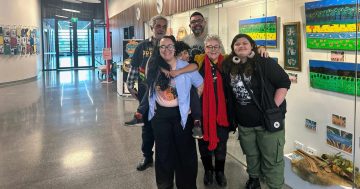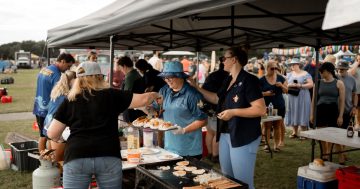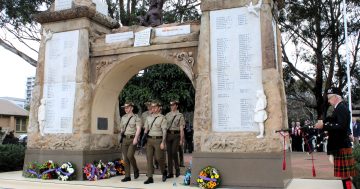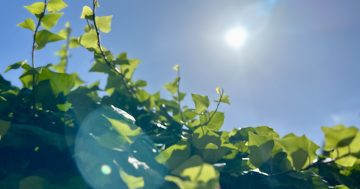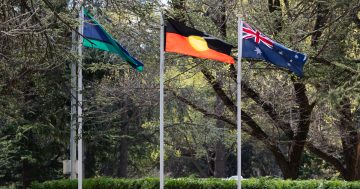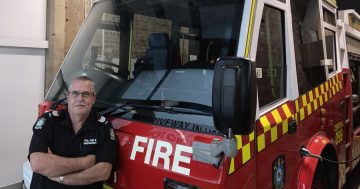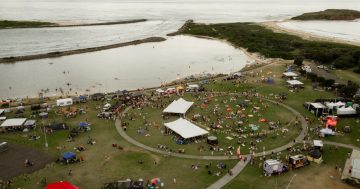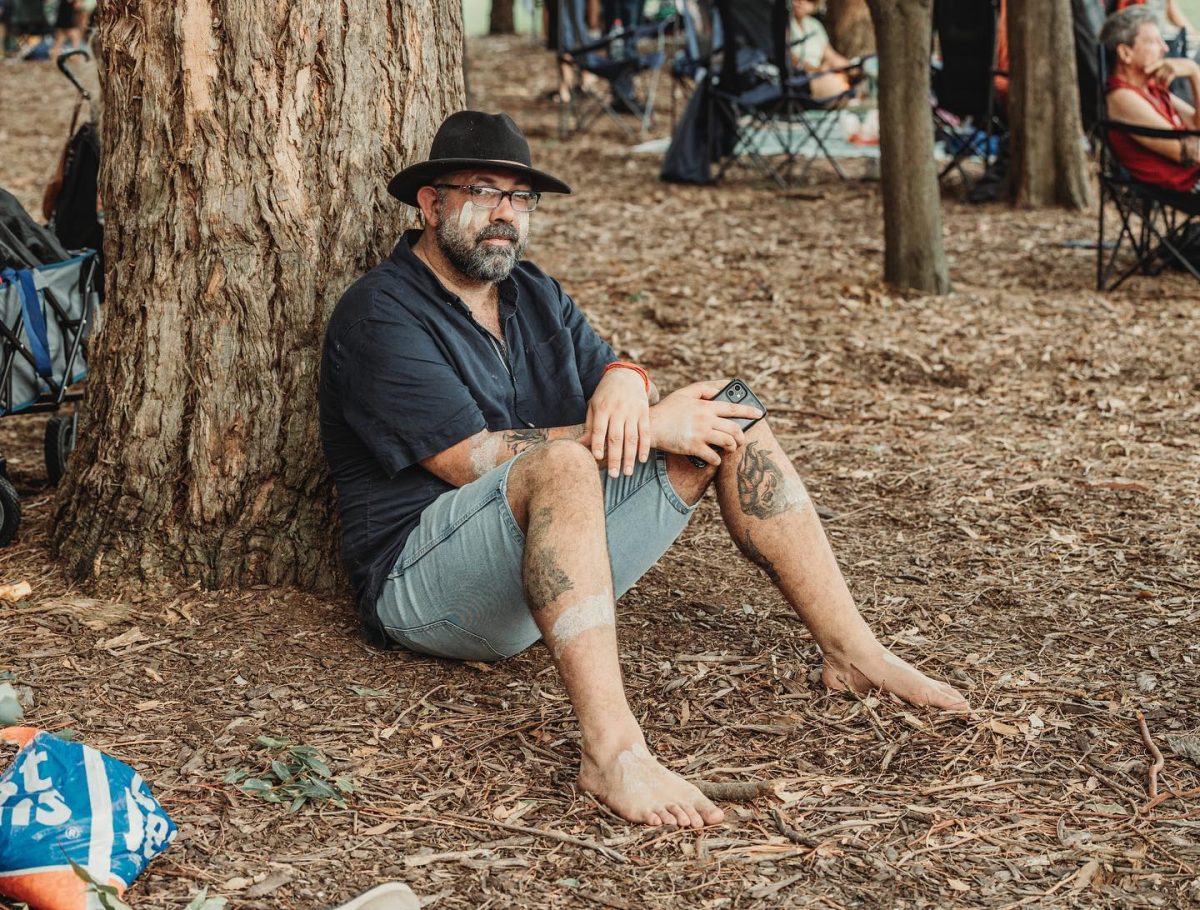
Layne Brown takes a moment to reflect at Yabun 2023. Photo: Anthony Smith Media.
Content Warning: The following story contains historic details that may distress some readers.
Yuin man from South East NSW Layne Brown shares why Australia Day isn’t a day of celebration for him.
The 26th of January has always been a day I haven’t enjoyed.
Non-Aboriginal people I knew celebrated their national day by getting very intoxicated.
Post Cronulla riots it got real patriotic with lots of random single-use plastic symbolism (ironically made in China).
Meanwhile I grew up being taught this was Invasion or Survival Day, and a time of active resistance to colonial occupation.
My first memory of being Aboriginal was centred around the Land Rights movement in Melbourne in the late 1980s, where I vividly remember being in a stroller surrounded by tens of thousands of people.
Even then both Aboriginal and non-Aboriginal people knew there needed to be changes, starting with Aboriginal access to our homelands.
A few years later I remember I felt a shift in politics as a young kid in Central West NSW. I learnt more about our nation’s history.
In the early 1800s Windradyne and other Wiradjuri warriors mounted a sophisticated resistance to colonial occupation.
Governor Brisbane at the time declared martial law in what is now called the Bathurst War.
Like spot fires around the country there are many other examples of conflict.
In 1816 Governor Lachlan Macquarie made the following declaration:
“I have directed as many natives as possible to be made prisoners … In the event of the natives making the smallest show of resistance – or refusing to surrender when called upon so to do – the officers commanding the military parties have been authorised to fire on them to compel them to surrender.
“Hanging up on trees the bodies of such natives as may be killed on such occasions, in order to strike the greater terror into the survivors.”
This declaration culminated in the Appin Massacre – the slaughter of at least 14 men, women and children who were shot at and driven off a cliff by members of the 46th Regiment.
It’s not confined to the 1800s. In 1932 an elderly Aboriginal couple, pregnant woman, and another Aboriginal person were shot over a cattle dispute in the Murramarang Massacre.
Not long after, in 1938, the first Aboriginal Day of Mourning protest was held on 26 January.
Our elders today encourage us to find the middle ground or a way forward.
With that in mind I experimented being a part of the mainstream events in recent years, and came to the conclusion it’s not worthwhile until Aboriginal people are deeply heard.
Aboriginal community provided cultural showcases and activities that shared Aboriginal songlines and narratives at council events on 26 January for years.
It was awkward to say the least. We’re tacked on at the start of an event, and the energy is ‘let’s tolerate this, they’ll be gone soon’ from the audience.
We’re lucky if there’s a couple of genuine people among the thousands in attendance.
Most see the schedule and ironically turn up after the Welcome to Country and cultural showcase for their business-as-usual event.
A lot of elders are now fed up and more jaded than ever.
I want to acknowledge that my local councils tried and that there are good people championing change but unfortunately it seems to be “too hard”.
Government and councils equal red tape, and we don’t have time for red tape in the current climate, where Aboriginal people feel devalued.
Every January mainstream media fuels racist rhetoric laying the boot into our people over the whole month of January.
I suggest people from all persuasions, particularly if you feel like you don’t know or understand Aboriginal people, to attend a local Aboriginal community-led 26 January response event.
Yabun in Redfern is a huge event open to all, with musicians, cultural dance, workshops and more.
Gadhungal Murrin holds a Huskisson Corroboree, with more info here.
Find your local community mob and ask what they’re doing in this gnarly time of year, or help them establish an event that truly honours what this time of year means for our people.
What’s going to lead to the best possible nation is a country that values and respects both sides of our shared history.









